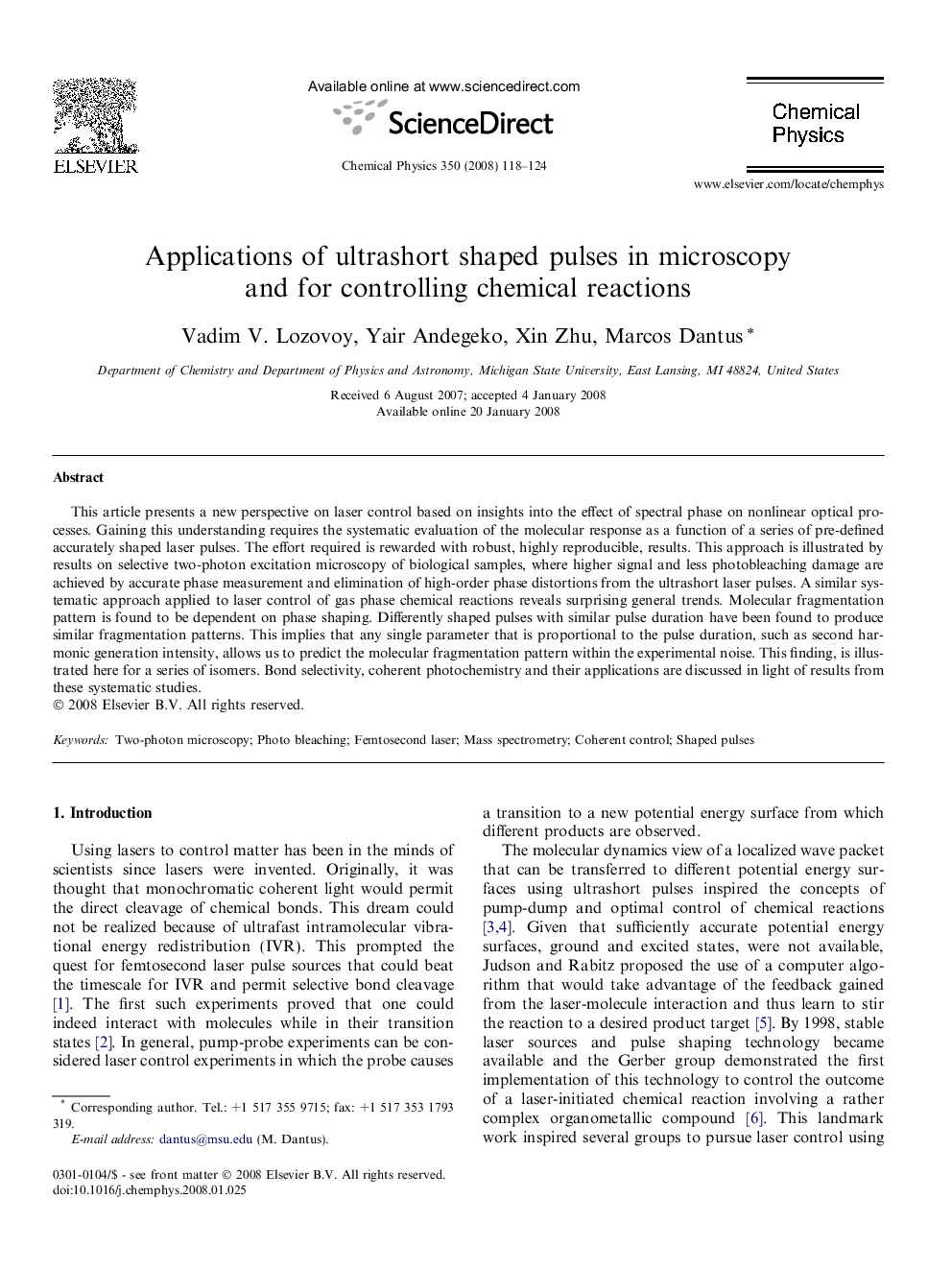| Article ID | Journal | Published Year | Pages | File Type |
|---|---|---|---|---|
| 5375637 | Chemical Physics | 2008 | 7 Pages |
Abstract
This article presents a new perspective on laser control based on insights into the effect of spectral phase on nonlinear optical processes. Gaining this understanding requires the systematic evaluation of the molecular response as a function of a series of pre-defined accurately shaped laser pulses. The effort required is rewarded with robust, highly reproducible, results. This approach is illustrated by results on selective two-photon excitation microscopy of biological samples, where higher signal and less photobleaching damage are achieved by accurate phase measurement and elimination of high-order phase distortions from the ultrashort laser pulses. A similar systematic approach applied to laser control of gas phase chemical reactions reveals surprising general trends. Molecular fragmentation pattern is found to be dependent on phase shaping. Differently shaped pulses with similar pulse duration have been found to produce similar fragmentation patterns. This implies that any single parameter that is proportional to the pulse duration, such as second harmonic generation intensity, allows us to predict the molecular fragmentation pattern within the experimental noise. This finding, is illustrated here for a series of isomers. Bond selectivity, coherent photochemistry and their applications are discussed in light of results from these systematic studies.
Related Topics
Physical Sciences and Engineering
Chemistry
Physical and Theoretical Chemistry
Authors
Vadim V. Lozovoy, Yair Andegeko, Xin Zhu, Marcos Dantus,
